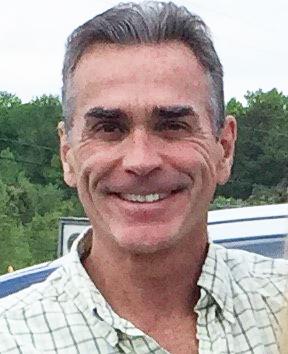At the U.S. Department of Agriculture, we celebrate Earth Day 2019 by offering big thank-you’s to farmers here in Delaware for all they do. Every day we see their efforts to conserve natural resources while producing food, fiber and fuel for people in their communities and around the world.
They are doing what needs to be done to make sure we all enjoy the benefits of clean and plentiful water, and healthy soils, ecosystems and wildlife habitat.
This year’s Earth Day theme, Protect Our Species, highlights the responsibility we share in supporting wildlife. Two-thirds of the land in the continental United States is privately owned, and the decisions that farmers make for their land can impact wildlife.
We at USDA believe people and wildlife can thrive together. USDA’s Farm Service Agency and Natural Resources Conservation Service assist agricultural producers with adopting conservation practices that benefit not only farms and forest lands but also wildlife species.
Producers across the nation have played and continue to play important roles in helping wildlife species flourish, rebound or recover.
Delaware is working with landowners to restore the habitat of the American black duck, which was once one of the most abundant dabbling ducks in the Atlantic Flyway. Their population had declined significantly, mainly due to habitat loss and degradation.
Black ducks in the mid-Atlantic region prefer habitat that is a combination of salt marsh, freshwater and brackish wetlands, and tidal flats along the Atlantic Coast, depending on the season. Producers can receive financial assistance for restoring previously drained or ditched wetlands, creating new shallow-water habitat from low-lying marginal cropland, and restoring or creating vegetative areas adjacent to wetlands which could serve as nesting habitat.
These habitat restoration efforts will have far-reaching benefits for the northern pintail, mallard, teal, and more than 25 other waterfowl and wildlife species. The targeted conservation practices will also improve water quality and help producers with saltwater intrusion or marginal cropland convert their land into valuable waterfowl habitat.
USDA offers a wide array of Farm Bill programs to help Delaware producers make wildlife-friendly improvements to croplands, grazing lands and working forests, and benefit agricultural operations. Programs include the Conservation Reserve Program, the Environmental Quality Incentives Program, and the Agricultural Conservation Easement Program.
USDA also offers free conservation advice, and financial assistance to help implement conservation practices.
If you farm, we encourage you to reach out to your local FSA and NRCS representatives at your nearest USDA service center to see if there is a program right for your operation. Find your nearest office at farmers.gov/service-locator.
If you’re not a farmer, on this Earth Day please thank them for the work they do to put food on our tables, to conserve our natural resources, and to support our nation’s wildlife.
Sean McKeon is the Delaware Farm Service Agency state executive director, and Kasey Taylor is a state conservationist with the Natural Resources Conservation Service. USDA is an equal opportunity provider, employer and lender.























































